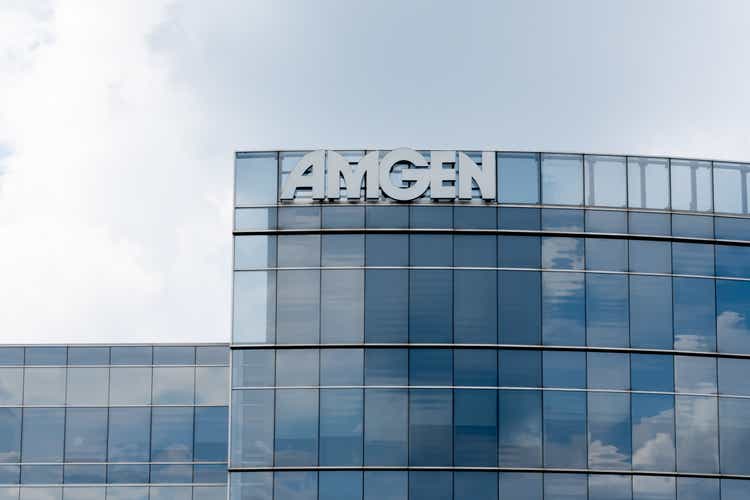
JHVEPhoto/iStock Editorial via Getty Images
Amgen (NASDAQ:AMGN) shares fell in late afternoon trading Tuesday after Cantor Fitzgerald argued that a potential loss of bone mineral density could be a safety risk linked to its obesity candidate MariTide (AMG-133).
According to investors and analysts, the experimental therapy targeting both GIP and GLP-1 receptors is among the frontrunners that can challenge Novo Nordisk’s (NVO) and Eli Lilly’s (LLY) dominance in the weight loss drug market.
Citing data from a Phase 1 trial for MariTide, Cantor analyst Olivia Brayer pointed out that the injectable at 420 mg dose was linked to ~4% loss of bone mineral density (BMD) over 12 weeks.
“On one hand, patients could naturally lose bone mineral density during weight loss treatment,” Brayer wrote with an overweight recommendation and a $405 per share target on the stock.
“On the other hand, this could be a non-starter because there seems to be a dose-dependent increase in BMD loss,” she added.
However, Jefferies analyst Michael Yee defended Amgen (NASDAQ:AMGN), noting that the Phase I AMG-133 data “could be interpreted depending (on) if bearish or bullish.” “Overall, we don’t believe there is an issue, and the effect is normalized over time,“ Yee, who has a buy recommendation on AMGN, wrote, adding, “We see highest dose has some declines, but the data is all over the place.“
“We are not overly concerned and view any pullback here as a buying opportunity ahead of“ a Phase 2 readout expected for MariTide later this year, Yee argued.
In May, William Blair and Barclays upgraded the biotech after AMGN CEO Robert Bradway said that the company was “very encouraged“ by the mid-stage data it has seen for the drug so far.
With its Q2 results in August, Amgen (NASDAQ:AMGN) announced a broad Phase 3 program for the candidate targeting obesity, obesity-related conditions, and type 2 diabetes.
Update 3.32 PM EST: Adds comments from Jefferies
